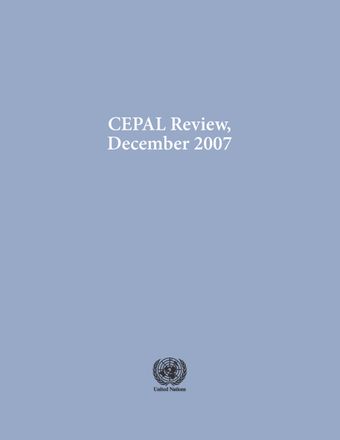-
Is the phasing out of the Agreement on Textiles and Clothing eroding competitiveness in Central America and the Dominican Republic?
- Source: CEPAL Review, Volume 2007, Issue 93, Dec 2007, p. 105 - 123
- Spanish
-
- 14 Dec 2007
Abstract
The Agreement on Textiles and Clothing (ATC) of the World Trade Organization (WTO), and the restrictions deriving therefrom, expired on 1 January 2005. This article quantifies the expected effect of the phasing out of ATC in the context of the free trade agreement between Central America, the Dominican Republic and the United States (DR-CAFTA). We argue that, other things equal, Central America and the Dominican Republic will obtain a smaller share of the United States market, owing to stronger competition from Asian countries, the consequent market reorganization, the rise of the “full package” system, and the lesser competitive advantage afforded by low wages in the value chain of the textile and clothing sectors. In the post-ATC era, other factors, such as just-in-time production and specialization, are the keys to competing advantageously on the international market, given the trend of integration in the links of that chain.





